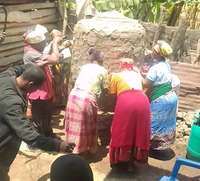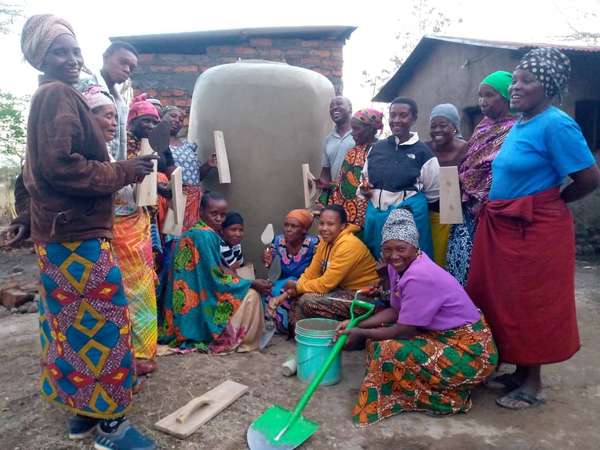The quality and amount of food that will be consumed by consumers are determined by post-harvest handling, which is a critical step in the food supply chain. If not managed properly, it causes substantial food loss and compromises food security. Innovative strategies like ferrocement grain stores give hope as the world struggles with food insecurity, which is already a significant issue.
It is believed that post-harvest losses in cereal crops, particularly in Tanzania, are high and may vary from 30 to 40% of the total crops harvested annually (FAO, 2022). One of the districts in the Arusha area where small-scale farmers struggle to control post-harvest crop loss is the Meru district.
In order to guarantee food security, there is a greater need to reduce post-harvest loss. 16 ferrocement grain stores were built by ECHO East Africa and Hand in Hand recipients, and 16 communities in Meru districts received instruction on how to use them to keep their grains. Many farmers in the Meru district, where post-harvest loss is a problem like in many other locations, now have hope as a result of this.

Figure 15. A group of women and men in Meru district constructing ferrocement grain stores in their community. Source: ECHO East Africa Staff
Women and men in the 16 communities were first in line for the building process following several trainings for cement grain stores that ECHO conducted in Meru District with the assistance of Hand in Hand. Surprisingly, the majority of participants—195 out of 228—were women, despite the demanding labor, and they appeared to take great pleasure in building these grain storage facilities.
Different women will arrive at the training facility every day with bright smiles and lots of energy to build the cement grain stores with the help of an ECHO trainer using basic hand tools like spades and buckets.

Figure 16. Women from Meru district after the construction of one of the ferrocement grain stores in their community. Source: ECHO East Africa Staff
The women think that adopting these ferro-cement grain storage and the post-harvest handling trainings offered has a great potential to revolutionize post-harvest handling practices in their communities and in developing nations where food security is a significant challenge.
Ferrocement grain stores are composite materials composed of cement, sand, and a reinforcement mesh of steel wires or rods. Because of its durability, strength, and affordability, it is frequently used in building. There are many resources on how to construct and use this grain in the ECHO website. For more information: http://edn.link/5043449.